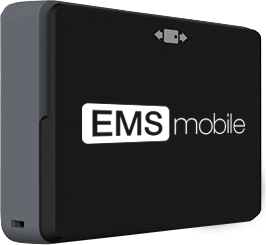Small Business Owners Guide:
Choosing the Right Payment Processor
Introduction
Choosing the right payment processor is one of the most important business decisions you will make. This guide is designed to help small business owners like you feel confident when researching and ultimately beginning a new payment processing partnership.
Let’s get started!
Don't have time to read the whole guide? Download a copy now and access anytime.
Payment Processing Basics
Payment Processing is the series of steps required to authenticate and approve a transaction, followed by the steps that move funds from the cardholder’s account to the merchant’s account.
Any transaction that does not involve cash or a check payment needs to be processed. So, if you want to give your customers the option to pay by credit card, debit card, electronic check, or mobile wallet, your business needs payment processing.
When a customer makes a non-cash payment to your business, an involved process takes place behind the scenes. There are more parties involved in these types of transactions than you might realize. In fact, there could be as many as eight parties involved, including:
- The customer
- The merchant (that’s you!)
- The credit card network
- The payment processor
- The payment gateway
- The merchant account
- The customer’s bank
- Your bank

The number of parties involved in each of your transactions will vary depending on the type of payment and the payment processor you have chosen. Some payment processors also offer merchant services solutions, which we’ll explore later.
The main reason why your business needs payment processing is obvious: to accept credit cards! Here are some other reasons why payment processing is essential for today’s businesses:
- It gives customers more options to pay, which improves their experience with your business.
- Online payment processing is a convenient option that continues to gain popularity with today’s customers.
- When you start processing credit cards, you can keep less cash on hand. This reduces the risk of your money being lost, stolen, or miscounted.
- Processing payments through your merchant account can help you streamline accounting processes, especially if you have access to online reporting and analytics.
- Accepting credit cards can speed up the checkout process and help you serve more customers in a day!
These are all great reasons to invest in payment processing, but the ultimate reason is that many of today’s consumers simply aren’t carrying cash. Some people find cash cumbersome or choose not to carry it for security reasons, and others choose to pay by card simply because it’s more convenient.
To stay relevant and competitive, your business needs to be equipped to process credit cards.
Types of Payment Solutions
Now that you know what payment processing is, let’s take a look at the types of solutions you can use to securely complete the process.
While you’re exploring these, keep in mind that different business types require different credit card processing solutions. For example, a brick-and-mortar retail store or restaurant may benefit most from a complete point of sale system, while a food truck or pop-up shop will find a better fit in a mobile solution.
Let’s dive in!

Fees & Interchange
And now to answer the question on every business owner’s mind — how much is this going to cost me?
Without knowing your business and the payment solution you need; we can’t tell you an exact dollar amount. However, we can give you an idea of what kinds of credit card processing fees you can expect to pay.
Your credit card processing fees are the amounts collected by your payment processor for each card transaction your business runs. A few common fee types include:
- Account Fees
- Equipment Fees
- Product & Service Fees
- Transaction Fees
There is one additional type of fee that every business accepting certain credit card types must pay. It's called an Interchange fee, and it's a fixed, non-negotiable part of accepting credit card payments.

Countertop Terminals
Do you need a simple, secure way to accept credit cards? The countertop credit card processing terminal is your solution! If you decide to go this route, make sure the terminal you choose is equipped with an EMV chip reader and is NFC-enabled.
- Why EMV?
Processing cards using the chip instead of a traditional swipe adds an important layer of security for the cardholder and can protect your business from costly liability fines in case of a data breach. - What is NFC?
NFC stands for Near Field Communication. This technology is what will allow you to accept contactless mobile wallet payments such as Apple Pay and Google Pay.
Industry experts predict that using a mobile phone to make a payment is likely to become a bigger part of our daily habits this year, so make sure your business is ready to accommodate those customers!
Mobile Solutions
Mobile credit card processing solutions are great for small businesses without a typical storefront or that need to get paid on the go.
As the name suggests, mobile payment processing solutions can travel with you so you’re ready to accept payments wherever you are. You can connect a mobile processing solution to your phone in a few simple steps, essentially turning your existing device into a credit card terminal! This is the ideal solution for food trucks and stands, contractors, plumbers, electricians, pop-up shops, and many more. Most mobile processing options will feature a terminal or card reader equipped with the latest technology, allowing you to dip, tap, or swipe credit cards.

Point of Sale Systems
A point of sale (POS) system is ideal for businesses looking to get more out of their payment solution.
Modern POS systems allow you to accept all forms of payment and manage your entire business from one place. These solutions come in various sizes and configurations depending on your business needs. When you’re in the market for a new POS, look for a solution that offers state-of-the-art hardware and the latest features designed to protect sensitive business and cardholder data. It should also help you manage your business through inventory tracking, transaction reporting, employee permissions and timekeeping, and more.
eCommerce & Online Shopping Carts
When was the last time you made an online purchase? For many people, the answer is today! This has brought eCommerce solutions and online payment processing to the forefront of the payments industry.
The term eCommerce stands for Electronic Commerce and refers to the buying and selling of goods over the Internet. In today’s connected world, eCommerce can be conducted through computers, tablets, smartphones, and any other web-enabled device. If you choose to equip your business with a solution like this, you can instantly expand your reach to the entire country, or even the globe! eCommerce solutions are also designed to help you streamline your business through advanced features such as email invoicing, secure vault storage, recurring payment scheduling, and reporting.
Merchant Services vs Payment Processing
Payment processing and merchant services work together to help businesses accept payments, but the terms aren’t necessarily synonymous.
Let’s break it down.
As we mentioned before, payment processing refers to the series of steps required to authenticate and approve a transaction, followed by the steps that move funds from a cardholder’s account to yours.
A payment processor (also commonly referred to as a credit card processor), will manage the transaction process by transmitting information from the customer’s credit card to their bank and finally, your bank. A payment processor is also responsible for monitoring and handling issues such as credit card fund limits, credit card validity, security, and so on.

Merchant services, on the other hand, refers to the hardware and software products a business uses to accept and process payments electronically. There are many ways to accomplish this today, which makes the term “merchant services” quite broad. It could refer to anything from full-scale point of sale solutions to online payment gateways, mobile payment acceptance tools, and more.
A merchant services provider is the company that provides the hardware and software involved with accepting and processing payments, such as:
- Mobile payment acceptance solutions
- Point of sale systems for retail and restaurants
- Custom gift and loyalty card programs
- eCommerce solutions, such as online shopping carts
Think of merchant services as a car, and payment processing as the fuel that keeps the car running. Your choice of car (merchant services) will dictate the type of fuel (payment processing) you need.
Here are some common industry terms to know before seeking the best merchant services provider and payment processor for your business.
Card-Not-Present Transactions
Transactions that are processed without the card or the cardholder being present. Orders placed over the phone or via the internet fall into this category.
Card-Present Transactions
Transactions in which the cardholder and the card are present.
Chargeback
A credit or debit card charge that is reversed by a bank. Some chargebacks can be disputed, and many can be avoided. Click here for a complete guide to chargeback disputes.
Merchant
An individual or business that sells products or services and is capable of accepting payment for those products and services via a merchant account.
Merchant Account
A type of bank account established under an agreement between a merchant and acquiring bank for the settlement of payment card transactions.
Secure Payment Processing
A commitment to security is one of the most important things to look for in a payment processor for your small business. Choosing a secure payment processor is in the best interest of both your business and your customers because it can help protect you from fraud and liability.
For example, all businesses accepting credit card payments are required to achieve and maintain compliance with the PCI Security Standards Council (PCI SSC).
The PCI SSC is a global organization that maintains, evolves, and promotes Payment Card Industry standards for the safety of cardholder data across the globe. It was founded in 2006 by American Express, Discover, JCB International, Mastercard, and Visa Inc., who all share equally in the Council’s ownership, governance, and execution.
The organization serves those who work with and are associated with payment cards, including merchants, financial institutions, point of sale vendors, and hardware and software developers. The main priorities of the PCI SSC are to help merchants and financial institutions protect their payment systems from breaches and theft of cardholder data and to help vendors understand and implement standards for creating secure payment solutions.
So, what does all this mean for you as a business owner?
To put it plainly, you, your bank, and your payment processor all need to adhere to the payment security standards set by the Council. If you don’t follow these standards and continue to accept credit card payments, you face devastating potential liabilities such as:
- Diminished sales
- Fines and penalties
- Fraud losses
- Legal costs, settlements, and judgments
- Loss of customer confidence/trust
- Termination of your merchant account

No one wants to deal with headaches and heartbreaks like these. That’s why maintaining PCI compliance is essential! Without it, you could be putting your entire business and all of your customers at risk.
Your payment processor should be able to help guide you through this process. And because the process of achieving and maintaining PCI compliance is always ongoing, your payment processor should also be there to help make sure your business does not fall out of compliance.
Payment Processor vs Payment Gateway

When researching a payment processor, you’ll probably come across another similar term, “payment gateway”.
So, what is a payment gateway?
A payment gateway is technology that allows merchants to accept credit card payments electronically, online, and in-store. The technology encrypts sensitive details such as a credit card number or customer information related to a payment and its main purpose is to guarantee that all customer information is transferred securely.
Here’s what happens when a customer makes a payment through a credit card payment gateway:
- Your customer’s transaction information is routed to your payment processor.
- Your processor sends the transaction request to the customer’s bank and the information to their credit card network.
- Your customer’s bank analyzes the transaction for signs of fraud and confirms that they have enough credit to complete the purchase.
- Your customer’s bank approves or declines the transaction, and you receive a corresponding response.
As long as you have chosen an efficient payment processor, a transaction can be completed in a matter of seconds.
The best payment gateways for small businesses include virtual terminals and online shopping cart integrations via pre-built APIs to offer benefits beyond processing payments.
What is a Virtual Terminal?
A Virtual Terminal is an interface built into a Payment Gateway. Its impressive technology will empower you to run your Gateway as if it were a credit card terminal on your computer, tablet, or mobile device. Virtual Terminals also offer innovative features to make getting paid easier, such as:
- Custom Email Invoicing: Email invoicing allows you to increase your business agility. Simply send an invoice via email and allow customers to make quick and secure online payments. You can also access a secure portal to see which invoices have been viewed and paid or even resend receipts.
- Secure Vault Storage: Securely store customer card information for future purchases or billing. Simply create a profile for your customer and they’re all set! You can say goodbye to requesting credit card information for every sale, thanks to this feature. And if you want the power to update outdated card information without sending a request, ask us about our Account Updater technology!
- Recurring Payments: Set up an automatic recurring billing schedule for customers with monthly subscriptions or outstanding balances. All you need to do is set the schedule and let the technology handle the rest.
- Reporting & Analytics: Use our Merchant Console to manage the most important aspects of your business. Through this portal, you can review the status of email invoices, view all transactions, manage inventory, analyze sales trends, and much more.
Interchange
Interchange is the foundation of the entire payment industry's cost structure. It is the wholesale price (also called "rate" or "fee") controlled and charged by the type of card used, like Visa and Mastercard, for authorization and settlement of a credit card transaction.
The fees associated are paid to the card-issuing bank to cover handling costs, fraud, bad debt costs, and the risk involved in approving the payment. Interchange is complex and constantly changing, which is why it is important to pay attention to this section of your merchant statement.
Most Interchange fees are calculated as a percentage of the sales price plus a flat fee. On average, these fees range between 1 and 3 percent of the total value of a transaction. Various factors affect Interchange, including:
- Card Brand
Each card brand (Visa, Mastercard, Discover) sets its own interchange fees. This means you'll pay a different rate for a Visa transaction than a Mastercard transaction. - Industry
Interchange fees vary by business type. Generally speaking, traditional retail businesses pay the lowest rates, while eCommerce merchants, direct marketers, and B2B merchants face higher fees. - Card Type
Processing a debit card with a secure PIN tends to cost less because it is considered to have a lower fraud risk. Credit cards with cashback or points programs, airline miles, or other rewards often have higher fees to help card issuers pay for these perks. In theory, this balances itself out because when rewards or cashback are available, customers often spend more than they would have with their debit card. - Cardholder
The type of debit or credit card cardholder can also affect the rate you'll pay. Individuals, businesses, corporations, and government agency cards require different rates. - Transaction Type
Different fees are required for in-person and online (commonly known as "card not present") transactions. This is because in-person transactions are considered less risky, requiring a PIN, signature, or other forms of identification. Any business accepting credit cards online should expect to pay a higher rate for those transactions.
Must-Ask Questions for a Potential Payment Processing Partner
Choosing the best payment processor and merchant services provider is an essential decision for your business. You need a provider who upholds PCI security standards, offers modern merchant services solutions, and provides secure payment processing.
Electronic Merchant Systems (EMS) has over 30 years of experience serving businesses like yours. Throughout those years, we’ve learned that it can be challenging for merchants to find a provider they truly trust.
So, we’ve compiled some questions you should ask any potential merchant provider before signing on the dotted line. And, since we know ourselves best, we provided answers based on the services and solutions EMS provides.

How secure are your services?
You should always partner with a merchant services provider who cares just as much about security as you do!
At EMS, PCI Compliance is very important. We have been a certified Level 1 PCI Service Provider for more than ten years, which means we hold our services and solutions to the most stringent industry security standards. You will not have to worry about PCI non-compliance fees. We are as serious about your transactions and the health of your business as you are, so we always ensure the services and solutions we provide are secure.
How long will it take to get set up with your technology?
Setting up a payment terminal should be as easy as "plug and play."
We believe you should be able to keep your focus on your business and sales opportunities, and your workday should not be interrupted by your merchant service provider. Accepting digital credit card payments and different card types doesn’t need to be a complex, lengthy project. Many payment processors can get you approved for a merchant account in under two business days. Your equipment should be shipped to you in under two business days as well.
Getting the hang of new technology from your merchant service provider requires a bit of a learning curve. However, a good payment processor should give you all the necessary resources to ensure your experience is hassle-free and seamless.
What is the actual processing fee?
When signing up with your merchant services provider, make sure you understand if you're getting an "introductory rate" that could increase at some point.
Ask if there is a rate guarantee that the payment processor can offer. As we mentioned earlier, credit card processing rates vary depending on the type of credit card transaction, the card used, and your monthly processing volume. If the processing rate offered is lower than what you expected, be sure you know which transactions or card types the rate does, and does not, apply to.
Clarify if the processing fee is a flat rate or a percentage of your transaction volume. How a payment processor calculates their fees can make a big difference in what you end up paying monthly. You can also inquire about termination fees and cancellation fees. Try to choose a merchant services provider that offers interchange-plus pricing, which is widely regarded as the most affordable way to accept credit cards.
Can I read reviews on your merchant services company?
A merchant services company may sound competent, but how can you be sure? Check their reviews.
EMS has been around for more than 30 years and has gathered more than 1,000 Google Customer reviews. We maintain a 4.7/5-star average rating and have an unmatched track record in the industry. We have not found a competitor that comes close to our review count and ranking.
Do I need to sign lengthy contracts?
The relationship between you and your merchant services provider should be considered a partnership. While EMS does require a merchant agreement, we believe that transparency is the key to keeping this partnership healthy. You won't find any hidden fees or contract clauses when you work with us!
Click here for more key questions to ask your merchant services provider.
Conclusion
What should you look for in a great payment processor and/or merchant services provider? Here are our five key takeaways:
- A suite of modern payment acceptance solutions including countertop terminals, mobile processing solutions, point of sale systems, and eCommerce options.
- A commitment to security and maintaining PCI compliance.
- A focus on efficiency and fast turnaround times for funding your merchant account.
- Transparency in the monthly payment and fee structure.
- A demonstrated positive reputation with customers.
Electronic Merchant Systems could be the right fit for your business! If you’re ready to learn more, contact our team today for a free consultation.
